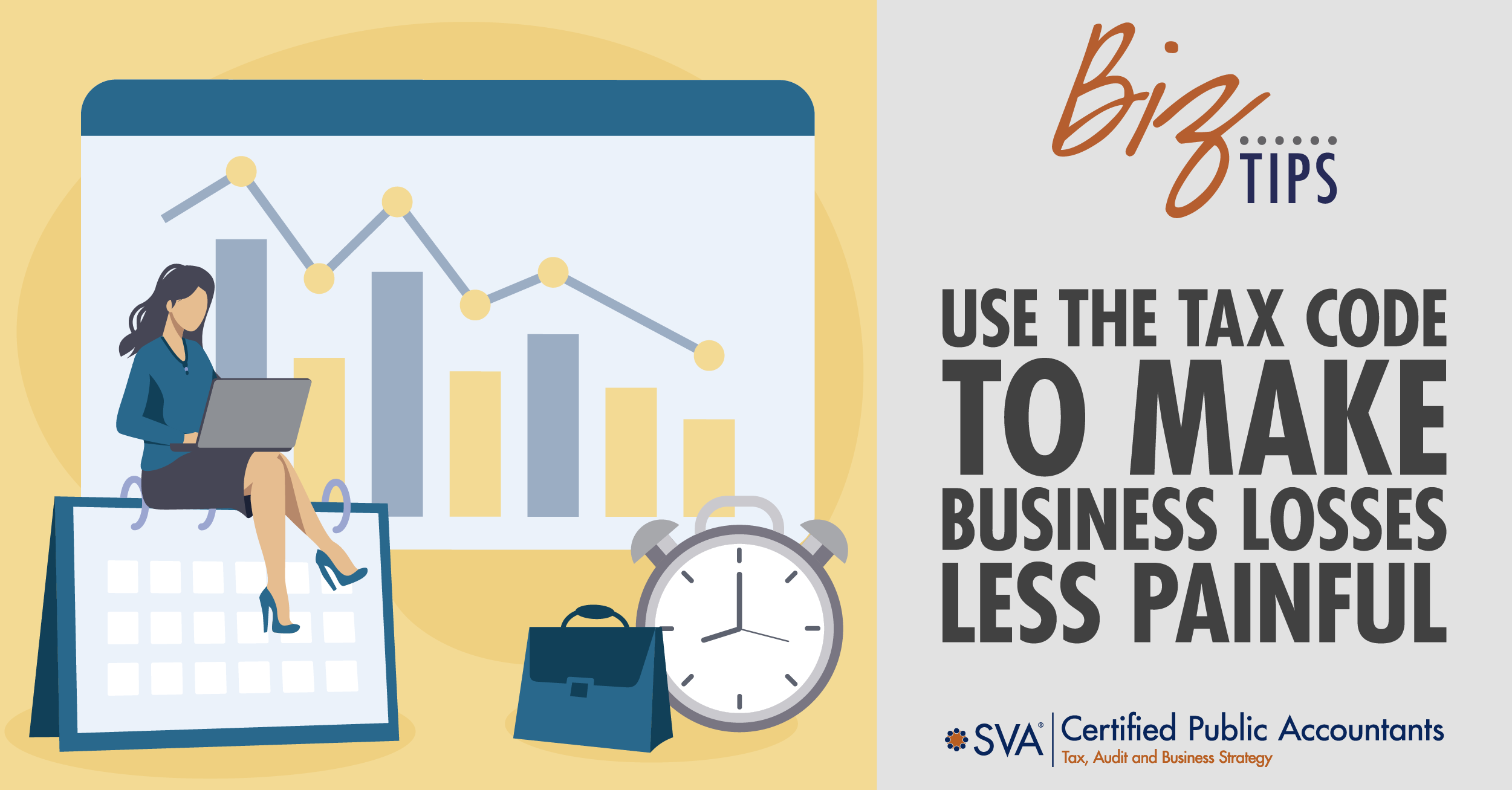Whether you’re operating a new company or an established business, losses can happen. The federal tax code may help soften the blow by allowing businesses to apply losses to offset taxable income in future years, subject to certain limitations.
Qualifying for a Deduction
The net operating loss (NOL) deduction addresses the tax inequities that can exist between businesses with stable income and those with fluctuating income. It essentially lets the latter average out their income and losses over the years and pay taxes accordingly.
You may be eligible for the NOL deduction if your deductions for the tax year are greater than your income. The loss generally must be caused by deductions related to your:
- Business (Schedules C and F losses, or Schedule K-1 losses from partnerships or S corporations)
- Casualty and theft losses from a federally declared disaster
- Rental property (Schedule E)
The following generally aren’t allowed when determining your NOL:
- Capital losses that exceed capital gains
- The exclusion for gains from the sale or exchange of qualified small business stock
- Nonbusiness deductions that exceed nonbusiness income
- The NOL deduction itself
- Section 199A qualified business income deduction.
Individuals and C corporations are eligible to claim the NOL deduction. Partnerships and S corporations generally aren’t eligible, but partners and shareholders can use their separate shares of the business’s income and deductions to calculate individual NOLs.
Limitations
The Tax Cuts and Jobs Act (TCJA) made significant changes to the NOL rules. Previously, taxpayers could carry back NOLs for two years, and carry forward the losses 20 years. They also could apply NOLs against 100% of their taxable income.
The TCJA limits the NOL deduction to 80% of taxable income for the year and eliminates the carryback of NOLs (except for certain farming losses). However, it does allow NOLs to be carried forward indefinitely.
A COVID-19 relief law temporarily loosened the TCJA restrictions. It allowed NOLs arising in 2018, 2019, or 2020 to be carried back five years and removed the taxable income limitation for years beginning before 2021. As a result, NOLs could completely offset income. However, these provisions have expired.
If your NOL carryforward is more than your taxable income for the year to which you carry it, you may have an NOL carryover. The carryover will be the excess of the NOL deduction over your modified taxable income for the carryforward year.
If your NOL deduction includes multiple NOLs, you must apply them against your modified taxable income in the same order you incurred them, beginning with the earliest.
(Download Video Transcript)
Excess Business Losses
The TCJA established an “excess business loss” limitation, which took effect in 2021. For partnerships or S corporations, this limitation is applied at the partner or shareholder level, after the outside basis, at-risk and passive activity loss limitations have been applied.
Under the rule, noncorporate taxpayers’ business losses can offset only business-related income or gain, plus an inflation-adjusted threshold. For 2023, that threshold is $289,000 ($578,000 if married filing jointly).
Remaining losses are treated as an NOL carryforward to the next tax year. In other words, you can’t fully deduct them because they become subject to the 80% income limitation on NOLs, reducing their tax value.
Important: Under the Inflation Reduction Act, the excess business loss limitation applies to tax years beginning before January 1, 2029. Under the TCJA, it had been scheduled to expire after December 31, 2026.
Planning Ahead
The tax rules regarding business losses are complex, especially when accounting for how NOLs can interact with other potential tax breaks. We can help you chart the best course forward.

© 2023

